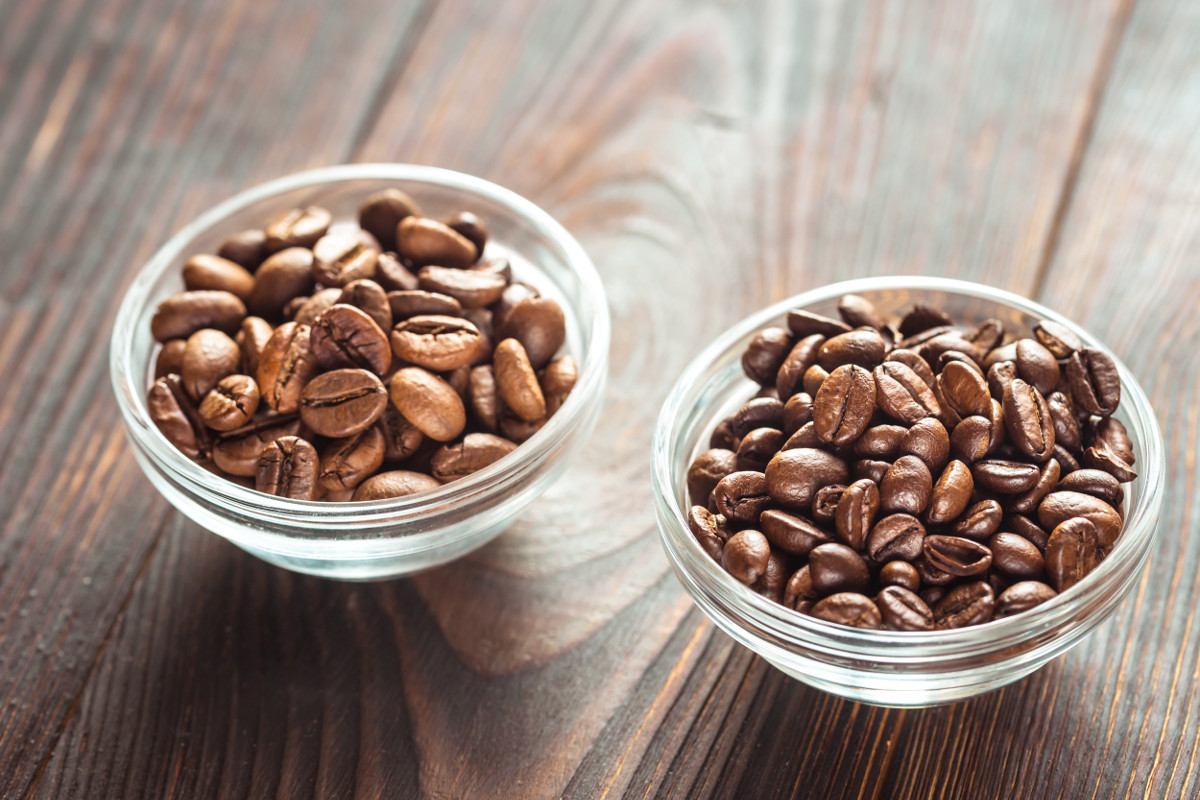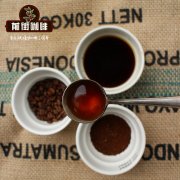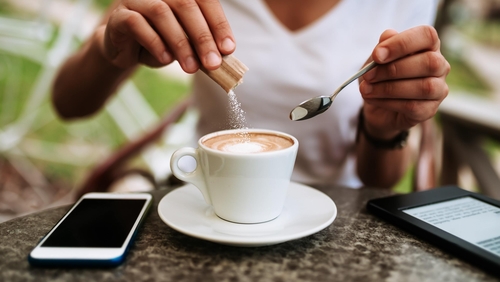[novice introduction] how do beginners buy the best coffee beans?
Professional coffee knowledge exchange more coffee bean information please follow the coffee workshop (Wechat official account cafe_style)
Espresso, hand cup, siphon pot, water temperature, extraction time. You can always refine your skills and ways, but no matter how good the technique is, the coffee bean itself is the biggest factor affecting the flavor of your coffee. If we use coffee beans that are not of high quality, we will not have a chance to taste really delicious coffee of high quality.
So what is the best coffee bean? Of course, what suits you best is the best, but this sentence looks like nonsense. If you haven't drunk enough coffee or tried enough varieties, how do you know which one is right? Is the item that you have been drinking for a long time necessarily the most suitable? Look at the flavor description of the words like it must be suitable for the taste?
Today, the editor will first jump away from the subjective and erratic flavor of coffee and share with you some practical tips for buying coffee beans.

First, look at the packaging information and introduction
All the information about coffee beans is on the label, and when you can read the label, it's easy to pick the best coffee beans.
Coffee beans
The principle that will never change, buy coffee beans (whole beans). Coffee powder is very convenient, but in order to save such a little time, it is not worth it, the taste is really too bad. Air is the enemy of coffee, which begins to oxidize when it is ground into powder, meaning the taste dissipates more quickly. The closer you get to grinding beans when you brew coffee, the fresher and more fragrant it is.
Baking date
The first element is that the baking date is completely different from the "shelf life". Although it feels like coffee can be kept indefinitely, this is not the case. Of course, if you drink coffee beans for a year, you may not get sick. Coffee beans may not be too "bad", but they are definitely not that good.
When the coffee bean is roasted, its chemical composition begins to change immediately. Coffee beans begin to emit carbon dioxide from roasting, a process known as "degassing" in English. When the coffee beans begin to exhaust, the oil in the beans will begin to oxidize, indicating that the flavor of the beans will begin to decline. The freshness of coffee beans is subjective, but the recommended coffee beans are consumed from four days to two weeks after roasting, but how the coffee is extracted can also affect this period.
For example, if you like hand cooking, it is recommended to start using it in the first week after baking, and the sooner you use it, the better, because the flavor and aroma of coffee is the most perfect and complete at this time. But if you like to make espresso (coffee maker), the beans can be "kept" for a little longer, about seven to nine days before you start using them. If you leave it a little longer, it will be suitable for making cold coffee.
These are just some suggested values. Remember to experiment to find the method that best suits your taste.
Baker
With good luck and plenty of cafes in first-tier cities, it's easy to get to know people who bake coffee. Get to know them, understand their ideas and the way they bake beans, increase interaction, not just the business of buying coffee, but also build a social network, which is very helpful for learning in coffee.
The coffee beans that will indicate who the baker is on the packaging label is worthy of careful attention. Because it means that he cares about his "work" and has a much higher chance of buying good coffee.
Place of Origin
Altitude, soil, rainfall and sunlight all contribute to the final taste of coffee beans, so the origin of coffee beans is an important indicator of how they are tasted. Coffee trees thrive along the "coffee bean belt", which is the area between the Tropic of Cancer and the North. If your coffee bag or barista can't tell you where this bag of coffee is grown, you may need to reconsider your options.
Coffee is produced in more than 60 countries around the world, but it's better to start with some famous producing areas and learn about their flavor characteristics before switching to more exotic varieties. In countries such as Hawaii, Brazil, Ethiopia, Kenya and so on, you can first understand the characteristics of each producing area and see which flavor you prefer.
Between the extremely unique climate and processing technology, exploring the flavor of coffee according to the region is a great enjoyment. Even if you already have one or two favorite producing areas, it is recommended to try different producing areas once in a while to discover something new.
Fair trade
In the field of food labelling, Fairtrade is an amorphous description, which means. Well, it depends on who you ask. You may see all kinds of Fair Trade labels on the packaging of coffee and other products. If this is an important consideration for you, it's a good idea to familiarize yourself with some of the more well-known labels and their meanings.
Will Fairtrade be good coffee? It's really hard to say, but Fair Trade represents that coffee producers, their employees, and their living environment are at least not being oppressed. What is produced by a good environment is usually not too bad. If you are interested, you can study which fair trade is most in line with your idea, and when you find it, it will be easier to choose.
Organic authentication
Organic is often misused in marketing to increase the price of products. In fact, organic certification is a very complicated thing. Different organic certification has different standards. Some organic certification can only prove that farmers do not use chemical pesticides and fertilizers. It does not mean that there is no chemical residue at all. And like other organic crops, organically produced coffee does not represent high quality. Even if there is no "organic certification", it does not necessarily mean that it is "non-organic". After all, generations of poor coffee farmers can neither afford chemical fertilizers and pesticides, nor can they afford the high cost of certification.
In other words, to find the best coffee beans, you have to taste them yourself. Because any kind of trade method or production certification has nothing to do with whether the coffee is good or not.
Second, warnings to be paid attention to
If you don't have the information you're looking for on your coffee bean label, you may have to be a little more careful, which doesn't mean it's rotten coffee, but the following information is a clear reminder: try not to buy it!
Coffee powder
Has the coffee been ground to powder? Yes. Well, don't buy it. If you are buying coffee beans from a roasting coffee shop and they only provide coffee powder, thank you and goodbye as soon as possible. Online shopping in the store? Say thank you to the coffee powder as well. Bye.
There's no bean grinder at home? Then solve this problem quickly. Nowadays, the household bean grinder is cheap and durable, so it is not difficult to find a household bean grinder that is suitable for your cooking method, price and space.
Large package
Go to the wholesale market and buy a big bag of coffee beans? It feels cheap, but it's not a common way to buy the best coffee beans. If you go to a coffee shop to buy coffee beans only wholesale or only more than a pound of large packaging, then look for another place! Buying coffee beans is like buying fresh bread. You'd rather make more trips to buy it regularly than buy too much at once and hoard it.
Preservation period
Coffee beans sold in supermarkets are usually marked with shelf life (date _). This is the same as not writing. If you want to buy fresh coffee, find a coffee bean that is willing to write down the baking date. The coffee beans have a shelf life of at least one year. Only coffee beans with no roasting date are tantamount to saying, "Don't buy me."
Where can I buy it?
The first step is to skip shopping malls and supermarkets. Unless there is a roasting coffee shop in the mall, or there is cooperation with some good bean baker, but there is basically no such place in China at present. So shopping malls and supermarkets are thank you. Bye.
Of course, you can buy it in the supermarket when you are in urgent need, but the chance of buying good and fresh coffee beans is very low.
Local purchase
Although the domestic coffee atmosphere is not strong, the coffee industry has developed vigorously this year, and even many third-and fourth-tier cities have their own roasting coffee shops. However, it is best to find some coffee shops that are more knowledgeable and have a good reputation, so that there is more quality assurance, and at the same time, you can avoid the middleman from making a price difference. if you can, be sure to ask the date of baking beans.
The bigger advantage is that by meeting people who really love coffee, you can give you better advice and learn more about coffee as you explore new tastes and styles.
Online purchase
If you live in a remote place, or the coffee atmosphere nearby is poor, and there is no suitable roasting coffee shop, buy it online. Whether it is a treasure or a micro-store, find a good coffee brand that can be sent to your door as soon as possible.
Usually, bean bakers have the service of issuing orders, but they still need to pay special attention to whether they are marked "order is now baked." it is most appropriate to contact the seller directly, because some brands with fewer styles and large shipments may also need to stock in advance.
How to choose the coffee beans that best suit you
Now that you know how to look at the label and pick out a good producer / baker, where and how to buy it, what kind of coffee do you want to buy? There are actually only two types of coffee you need to know: Arabica and Robusta
Arabica
When it comes to a good cup of coffee, Arabica coffee is king. More than 60% of global coffee consumption is Arabica coffee. It is more popular for its fruity, sweetness and acidity. But again, promoting 100% Arabica is sometimes a gimmick, because 70% of the coffee beans produced worldwide are Arabica varieties, and "100% Arabica" is not the same as "good" coffee. If there were no other better gimmicks, who would just talk about "100% Arabica"?
Robusta
Compared with Arabica coffee beans, the flavor and chemical complexity are lower, and Robusta varieties can be planted and maintained more easily and produce more. This usually means that you can enjoy a cheaper price. Robusta coffee also grows well at low elevations and is naturally pest-resistant and contains much higher caffeine than Arabica coffee. But do not think that he must be "bad", espresso contains a certain amount of Robusta will increase the taste and level.
Find the baking degree you like.
There is no completely standard way to bake from shallow to deep.
Light baking is relatively light color, baking time is relatively short, the taste is sour.
Medium baking has a medium brown tone and a more balanced sweet and sour flavor.
Medium and dark roasting is a rich dark color with a slightly glossy surface, slightly sour and bitter, and many espresso beans are roasted at this level (except Starbucks).
Deep baking is a bright black color, with a strong and obvious bitter taste, almost not sour.
It doesn't matter which baking degree is the "best". Even if the most popular boutique coffee is light roasting, it doesn't mean that light roasting is for everyone. The most important thing is to find out your favorite flavor.
Got the best coffee, and then what? Taste, taste, and then continue to taste.
The beauty of coffee is that it has so many choices. It's nice to buy a good bean, but as a true coffee lover, you need to look for more new flavors along the way. This is especially true if you are after boutique coffee. Because the better the quality of coffee beans, the rarer the yield, the more obvious the impact of climate harvesting treatment. As a crop, you can't drink a boutique coffee with the same taste every year. So get out of your coffee comfort zone, learn more about coffee, and try more new flavors. You may not like every kind of coffee beans, but you can certainly find more "new lovers".
END
Important Notice :
前街咖啡 FrontStreet Coffee has moved to new addredd:
FrontStreet Coffee Address: 315,Donghua East Road,GuangZhou
Tel:020 38364473
- Prev

How coffee is grown, produced and roasted into a cup of delicious coffee
Professional coffee knowledge exchange more information about coffee beans Please follow the coffee workshop (Wechat official account cafe_style) We consume more than 2.25 billion cups of coffee worldwide every day. It is estimated that 2/3 of Americans drink one cup of coffee a day, while those who drink coffee every day drink 18.5 gallons of coffee a year, but this is negligible compared with Finland, where Finns drink an average of one cup of coffee a day.
- Next

Why do you want sugar in your coffee? Is it a matter of taste or simple habit?
Professional coffee knowledge exchange more coffee bean information Please pay attention to the coffee workshop (Wechat official account cafe_style) when drinking coffee, most people have a habit: add sugar and then stir well before drinking. But why add sugar to coffee? Because the coffee is bitter? Because the coffee is not sweet enough? The editor has spent some time in some boutique cafes, some of which are basically not obvious.
Related
- Beginners will see the "Coffee pull flower" guide!
- What is the difference between ice blog purified milk and ordinary milk coffee?
- Why is the Philippines the largest producer of crops in Liberia?
- For coffee extraction, should the fine powder be retained?
- How does extracted espresso fill pressed powder? How much strength does it take to press the powder?
- How to make jasmine cold extract coffee? Is the jasmine + latte good?
- Will this little toy really make the coffee taste better? How does Lily Drip affect coffee extraction?
- Will the action of slapping the filter cup also affect coffee extraction?
- What's the difference between powder-to-water ratio and powder-to-liquid ratio?
- What is the Ethiopian local species? What does it have to do with Heirloom native species?

